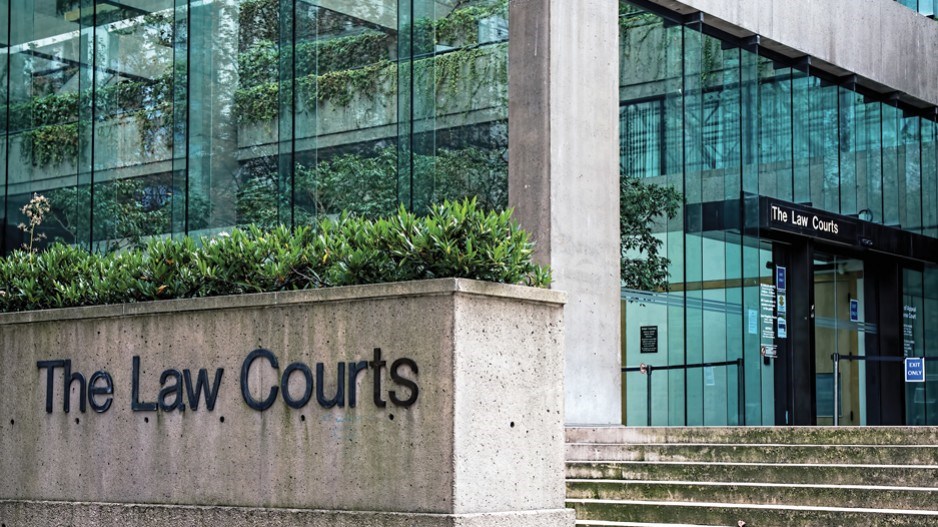The Meng Wanzhou extradition hearings took a turn Tuesday, as Associate Chief Justice Heather Holmes said she is concerned about the defence evidence showing possible RCMP/ CBSA misconduct.
The first indication of the court’s consideration of Meng’s position that border officers violated her rights by illegally collecting her electronic devices and passwords - then passing it on to police - came when Crown counsel Diba Majzub was arguing the lack of evidence showing a U.S.-led coordination in the evidence gathering.
“I know your focus is on the U.S. conduct, but I can’t help but be influenced by the bulk of submissions on behalf of Ms. Meng being on the conduct of Canadian officials,” Holmes told Majzub during his presentation on the Crown’s arguments. “It’s the response to the request that appears to be of most concern.”
Majzub noted a only one frontline CBSA officer had contact with the FBI, and the cooperation is completely legitimate per any case where two extradition treaty partners work together to arrest a suspect.
Such an extradition treaty exists on the assumption that the U.S. authorities are acting in good faith - and significant evidence to the contrary is needed to refute that fact and prove conspiracy.
Such evidence did not exist in this case, Majzub said.
“There’s nothing nefarious for the U.S. to ask for the collection of evidence - and for it to be transferred to the U.S. when the subject is extradited,” he said. “There’s no attempt to influence Canadian officials in making the arrest... It is completely within [the U.S.’s] right to contact Canada if a suspect who is wanted is in Canada.”
Holmes challenged the stance, however, noting it remains possible for the RCMP and the CBSA to engage in misconduct without U.S. involvement.
Majzub also presented the argument that - even if Meng’s devices and passcodes were passed on to the FBI by the RCMP - and no evidence indicates that had happened - it would still be within the realm of legitimate evidence sharing between law enforcement agencies.
“There’s cooperation on criminal files,” he said.
Meng, the CFO of Huawei Technologies, was arrested in Vancouver on Dec. 1, 2018, when trying to connect to a flight to Mexico. The Chinese executive was questioned by border agents for almost three hours and had her devices taken from her - before the RCMP formally arrested her after the border examination.
Crown counsel Robert Frater asked Holmes to consider the two narratives being advanced - one by Meng that’s “exciting” and entailed a large, cross-border conspiracy to arrest the Chinese executive and seize her belongings illegally, or a “prosaic” version based on actual evidence as advanced by the Crown.
“[The defence] is asking you to find the opposite of what the evidence is,” Frater said. It leads them to allege lying on a grand scale by several witnesses... How many times have they asked you [Holmes] to find that a witness was lying? That’s an Extraordinary amount of lying they ask you to accept, and not just mistakes - but outright lies.”
Frater said that, given the large amount of heresy present in the case, the court should be flexible on its assessment of testimonies - only judging their trustworthiness and leaving their veracity to an eventual court case/trial.
The one exception on that front, Frater said, is the infamous Ben Chang affidavit - the only court submission made by the RCMP officer that the defence said led the U.S.-Canada effort to share illegally gathered information from Meng. Frater said the Crown has clearly outlined that it does not view the statement to be credible, given the inability for Meng’s defence to cross-examine. That document should be ignored and is only being provided at the request of Meng’s legal team, Frater said.
Chang, who retired in 2019, now lives in Macau and has refused to testify on the case in person.
The Crown also added that Meng’s defence has not been able to link the U.S. to any concerted effort to illegally secure Meng’s electronic devices - a fact that should lead to the court throwing out the defence’s case on a conspiracy involving Meng’s arrest.
Earlier in the day, defence attorney Richard Peck concluding his argument on CBSA/RCMP record-keeping on the case.
On Monday, Peck said the lack of notes of meetings leading up to the 2018 arrest - as well as very few records being kept about the actual line of questioning Meng faced after her arrival and of inter-agency communication- was “akin to destroying evidence” in a case that was clearly court-bound from the beginning.
The defence also criticized arresting RCMP officer Winston Yep’s reasoning for not immediately arresting the Huawei CFO after her arrival from Hong Kong on a Cathay Pacific flight. Yep previously testified that he decided to wait until after the CBSA conducted its border entry exam partially because of safety concerns relating to making an arrest in a confined space (i.e. plane cabin or jetway).
Peck said Meng being a middle-aged tech executive with no violent-crime records means that Yep’s reasoning doesn’t make sense, alleging instead that it was a cover story for the RCMP’s real intentions of letting CBSA seize evidence that the RCMP cannot prior to reading Meng her charter rights.
Holmes, however, said she could understand the RCMP’s public safety concerns for making an arrest in the plane.
The hearings continue this week.




